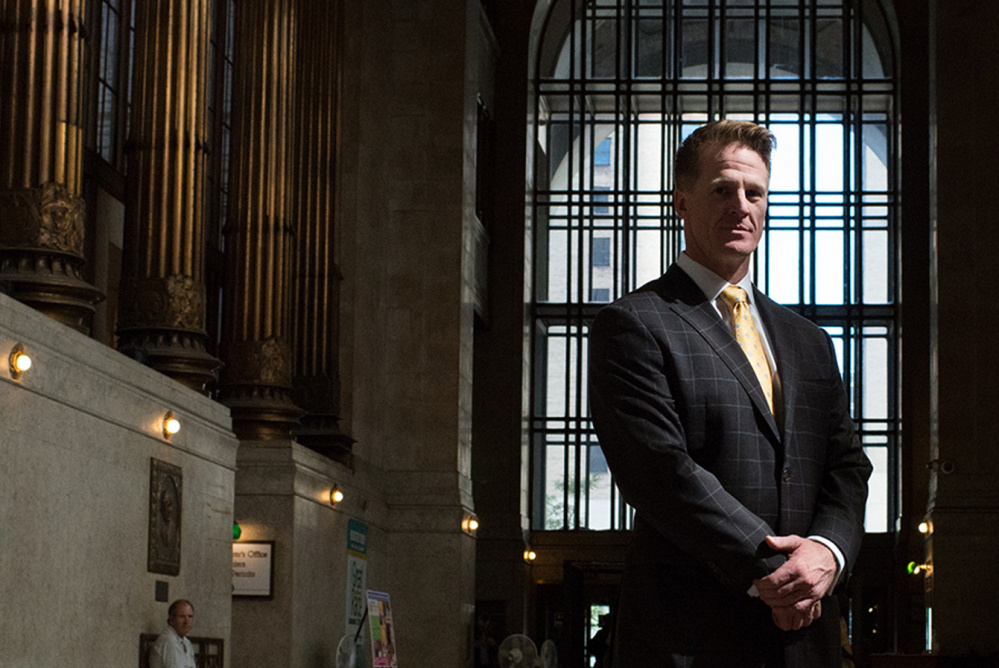For decades, anonymity has been a bedrock principle of Alcoholics Anonymous and other groups that help people recover from substance abuse. They have long insisted that secrecy, even for those who have conquered addiction, is the only way to ensure that people can feel safe coming to meetings.
But now, with a generation in the grip of an opiate epidemic, many younger activists are publicly acknowledging their addiction and recovery, and encouraging others to do the same. Stepping forward, they say, is the only way to earn social acceptance, political clout and badly needed money for treatment.
“So long as we keep ourselves in the shadows, we will remain in the shadows,” said Chris Poulos, 33, a third-year law student at the University of Maine who was addicted and homeless as a teenager and served nearly three years in a federal prison for dealing cocaine.
The idea of going public has been tried a number of times, with only limited success, in the eight decades since Bill Wilson and Dr. Bob Smith started working with alcoholics in Akron, Ohio. The stigma of substance abuse is deeply ingrained in America, where many still consider addiction a personal failing, not a disease.
But leaders of the latest effort hope to reach a milestone Sunday at the Washington Monument, where they expect tens of thousands to attend a very public event, Unite to Face Addiction, and launch a national advocacy group.
Their tactics echo the strategy of people with HIV and AIDS, who organized in the 1980s to demand treatment, and, more recently, the approach of transgender people.
Jason Snyder hid his addiction for years. When his brother Todd died in 2005 of a heroin overdose, he held his tongue and kept on using alcohol and pills. When a second brother, Josh, died two years later, also of a heroin overdose, Snyder said nothing to his wife, family or friends about his own accelerating drug use. He went on finding opiates on the street.
After his $300- to $500-a-week habit destroyed his marriage and drove him into rehab, he still didn’t talk about addiction and recovery, even after four years of abstinence.
In the past few months, however, Snyder has begun to reject the secrecy he so zealously tended. Now, if the subject comes up, he will discuss his recovery and answer any questions. Two weeks ago, the Pennsylvania native took his biggest step: He went to Harrisburg and spoke with top state officials about the vast unmet needs of addicts.
“It’s something I never would have thought about doing earlier in my recovery,” said Snyder, 41, who lives in Pittsburgh and runs a nonprofit that helps people find health insurance. “This was always something to hide and be ashamed of.”
Through education, public opinion can change.
“It’s … hard to hate up close,” said Poulos, who is a member of a Portland, Maine, drug task force and has an office in the police station where he was interrogated a lifetime ago. “It’s easy to hate the unknown.”
Copy the Story LinkSend questions/comments to the editors.



Success. Please wait for the page to reload. If the page does not reload within 5 seconds, please refresh the page.
Enter your email and password to access comments.
Hi, to comment on stories you must . This profile is in addition to your subscription and website login.
Already have a commenting profile? .
Invalid username/password.
Please check your email to confirm and complete your registration.
Only subscribers are eligible to post comments. Please subscribe or login first for digital access. Here’s why.
Use the form below to reset your password. When you've submitted your account email, we will send an email with a reset code.